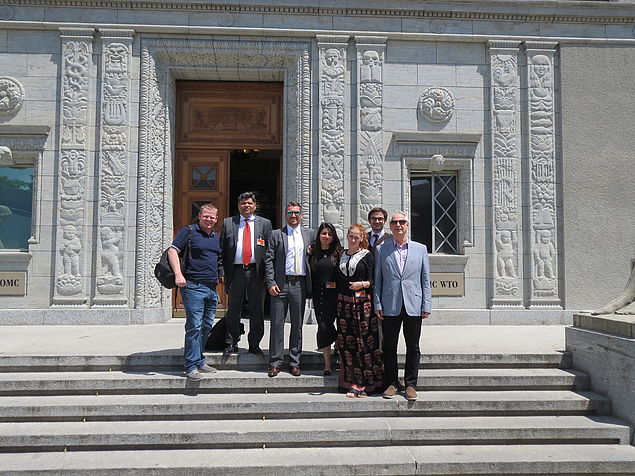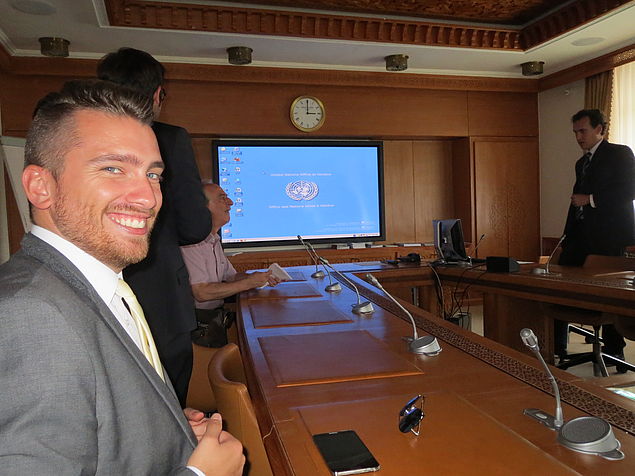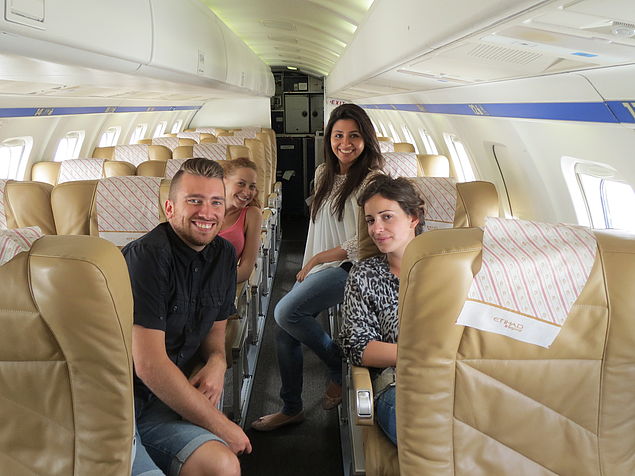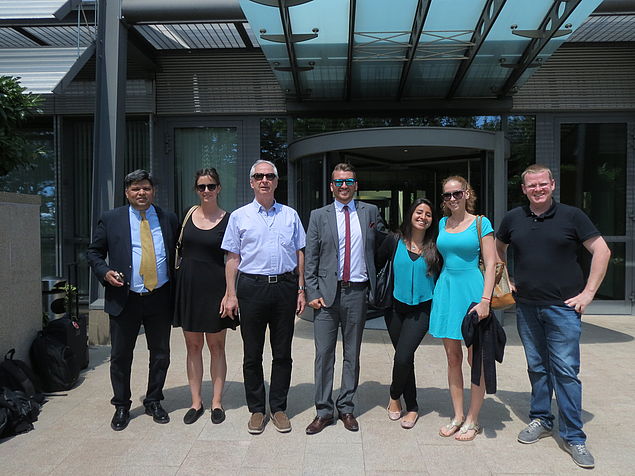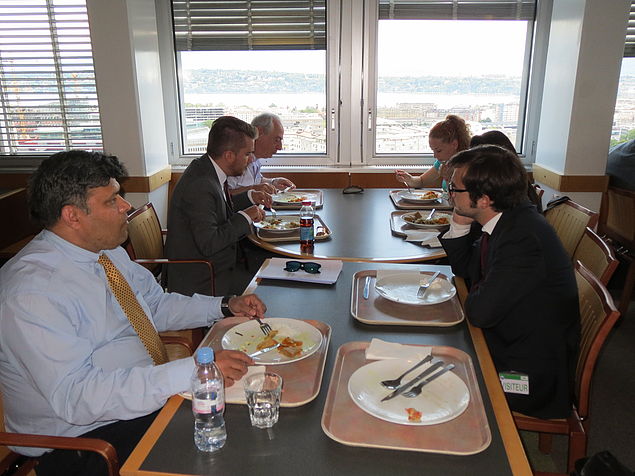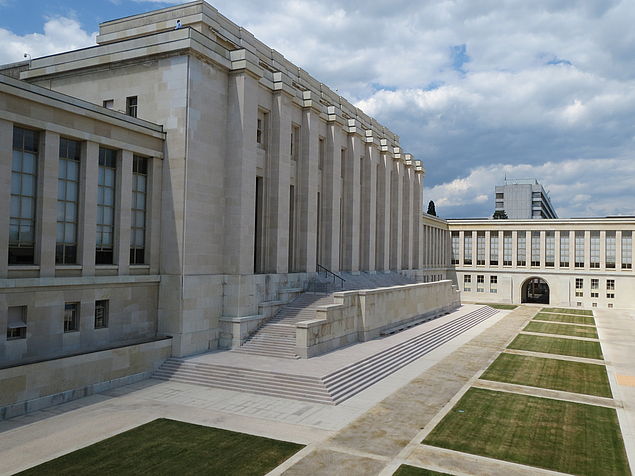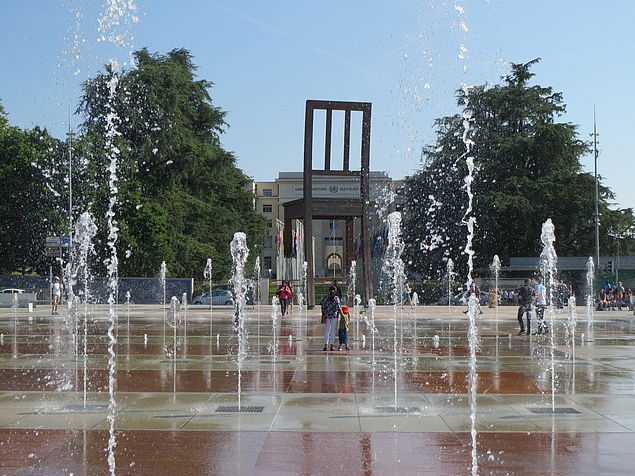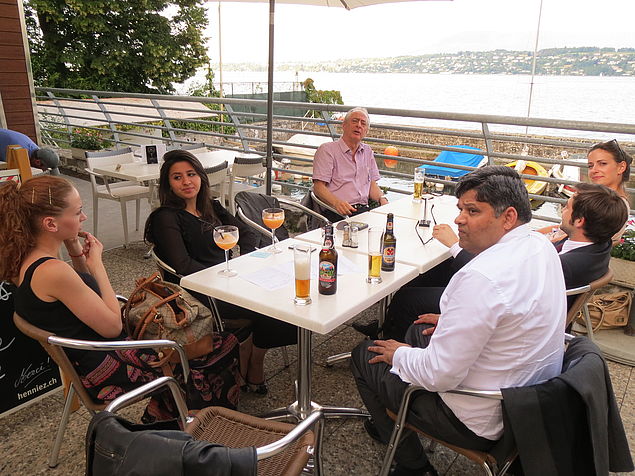Study Trip Report to Geneva 2015
Our LL.M. trip to the WTO Headquarters in Geneva from 24-25 June 2015 offered us a series of intellectual exchange outside our classroom in Vienna. These intriguing lectures awakened the interest of us in exploring practitioners' knowledge and seeing the real face of international law.
In the first place, a lecture on reforms of the WTO dispute settlement system was delivered by the Counsellor of Legal Affair Division at the WTO Secretariat, Mr. Janos Volkai. He presented several points of lively questions on the Dispute Settlement Understanding (DSU) review negotiation, including rights of third party, 'sequencing' problem and transparency. There have been some precedents that applied new procedural rules on ad-hoc basis in this regard, such as opening some proceedings to the public. However, the practice has not become an established practice, and the codification of the new procedural rules has been in the face of disagreement. The lecture given by Mr. Volkai offered a suggestion that the DSU negotiation is a question of providing a balance between strengthening member state's control over the WTO dispute settlement, on the one hand, and maintaining the present judicial system which gives first priority to interests of litigant parties, on the other hand.
The second lecture on the WTO Appellate Body practice was given by the Member of the Appellate Body, Professor Peter Van den Bassehe. He lambently presented two opposite kinds of criticism against the Appellate Body (AB). One is the AB abuses its mandate. Another is the AB has not fulfilled its mandate. He delivered a witty observation, with referring a number of WTO cases and legal interpretations thereof. He pointed out the different positions of domestic industries, the governments and civil society, and led us to understanding how these criticisms come about and the heart of the issues.
The third speaker was the Director of the Trade in Services Division at WTO Secretariat, Mr. Hamid Momdouh. He gave us an overview of the development and the significance of trade in service, with putting interesting examples of Egypt, where he came from. Current negotiation on trade in service has faced a difficulty due to the influence of negotiation on trade in agriculture, conflicts of interest between developed countries and developing countries and so forth. On the one hand, there is new progress in negotiation, such as those of Trade in Service Agreement. On the other hand, other issues are arising, such as the inconsistency between increasing bilateral trade agreements and multilateral agreements. His lecture impressed us on the dynamism of the field of trade in service.
The fourth lecture on the history of the AB and topical issues of WTO cases and practice was delivered by the Director of the Secretariat of the Appellate Body, Mr. Werner Zdouc. Varied topics included current pending cases, the 'sequencing' problem, increase of litigations filed by Latin-American countries and China, the relationship between increasing Free Trade Agreements and WTO dispute settlement mechanism. His presentation in fact covered issues related to very different countries as varied as where each of LL.M. students came from. Furthermore, LL.M. students questioned him to get more knowledge regarding these topics.
A Lecture at UNCTAD, Palais des Nations, 24 June 2015
At the UNCTAD Secretariat, we were received by Mr. Hamed EI Kady, the Expert for International Investment Policies at the UNCTAD. Based on his extensive experience with technical assistance of investment arbitration for developing countries, he introduced into us technical rules and principles of investment law, with giving numerous examples of colourful investment arbitration cases. His lecture first offered a viewpoint that interests of hast states and investors underlie investment, and subsequently extended into different questions. In addition, since international assistance activities for investment arbitration was beyond our investment law course, this lecture showed us another aspect of investment arbitration.
Advisory Centre on WTO Law, 25 June 2015
The last lecture was given by the Executive Director of the Advisory Centre an WTO Law (ACWL), Mr. Niall Meagher and the Counsel of the ACWL, Mr. Jan Bohanes. The ACWL is one of the smallest international organizations, which has an interesting purpose of facilitating developing countries' use of WTO dispute settlement. The ACWL has streamlined previously scattered capacity-building efforts in developing countries for more effective ones in the context of WTO dispute settlement. Mr Bohanes interestingly described the Centre's ultimate purpose as becoming unnecessary anymore for those countries.
Through this study trip, some of us were convinced that working in an international organization was their career ambition. Overall, all of us were definitely impressed by the lively discussions and the precious meetings with brilliant practitioners.
Erika Nakamura (LL.M. Class 2014-2015)


